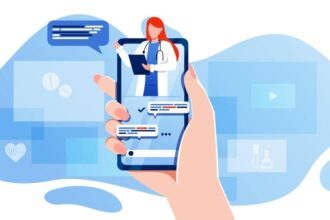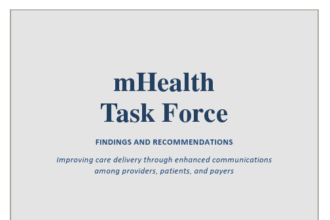 New start-ups focusing on digital health are being born daily. I regularly attend demo days organized by accelerators, which are quasi vocational schools for start-ups where they get education, mentorship, networking and sometimes a bit of seed investment. Each accelerator class often ends in a demo day, which is a sort of graduation or coming-of-age party.
New start-ups focusing on digital health are being born daily. I regularly attend demo days organized by accelerators, which are quasi vocational schools for start-ups where they get education, mentorship, networking and sometimes a bit of seed investment. Each accelerator class often ends in a demo day, which is a sort of graduation or coming-of-age party.
 New start-ups focusing on digital health are being born daily. I regularly attend demo days organized by accelerators, which are quasi vocational schools for start-ups where they get education, mentorship, networking and sometimes a bit of seed investment. Each accelerator class often ends in a demo day, which is a sort of graduation or coming-of-age party.
New start-ups focusing on digital health are being born daily. I regularly attend demo days organized by accelerators, which are quasi vocational schools for start-ups where they get education, mentorship, networking and sometimes a bit of seed investment. Each accelerator class often ends in a demo day, which is a sort of graduation or coming-of-age party.
Interestingly, the demo days in the last year or so (in healthcare and general consumer products) have been filled with self-descriptions by presenting teams (usually 10-20 get to present in any one demo day) as “the uber of this” or “the uber of that.” I presume they choose to use that analogy to connote a disruption of an industry, like Uber has done with transportation, but that’s where the similarity ends. Yes, healthcare is, in many ways, like the taxi industry: big, unreliable, unpredictable, price-obscure, highly analog, and lacking good data. However, the vast majority of the ideas coming out of these start-ups are no uber ideas!
The vast majority of ideas worked on by healthcare start-ups are interesting but not disruptive. And that is okay – just don’t compare them to Uber.
Don’t get me wrong; there are a lot of nifty ideas, some with real utility and potential and others that are just nifty with no future. However, there was nothing in the presentations I witnessed that indicated they can or will disrupt any industry and certainly not one as complex and multidimensional as healthcare. One start-up, for example, identified their activity tracker device that gets attached to your gym equipment as “the uber of tracker devices.” Really? It seemed like just another super pedometer with smartphone connectivity and a good reporting interface. To be fair, other good ideas had some disruption potential in a particular narrow service or corner of healthcare delivery but were far from being “the uber of healthcare” in the sense of industry-model disruption.
Others go at it from the patient’s point of view. They correctly describe the huge gaps in patient knowledge and the incredible potential of the empowered patient, and they compel us to imagine all the great benefits in outcomes and costs that would come from informed patients who have access to every bit of information about themselves so they can take charge of their own healthcare decisions. Again, really?
Indeed, there are segments of patients who are fully aware of their healthcare and ailments they suffer. In some cases, they are highly informed patients suffering relatively rare diseases, but in other cases, they are merely the “worried well” (i.e., people who are relatively fine but like to quantify themselves to the max). The majority of people are either not interested or not equipped to manage all this information and so-called patient power. In one survey, doctors expressed skepticism and disinterest in having patients visit them loaded with all kinds of information that may be irrelevant and useless to their encounter.
Where does this leave us?
Of course, an informed patient is a better patient. But a misinformed patient can be a worse patient.
Advances are being made every day. New ways to predict, diagnose, treat and manage diseases are being discovered and launched every single week. Information available to doctors and patients is improving all the time, allowing for improved healthcare and improved outcomes, but this is a process evolution, plain and simple.
Every time we use silly terms and analogies to describe what’s happening or to make a big promise, we tend to overstate the case and risk losing everyone’s interest at best and our credibility at worst.
Advice to start-ups: Stop using the Uber analogy!

_9_2.jpg)





